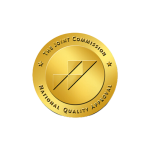What You'll Learn:
- Explore Medicare, Medicaid, and private insurance to see what applies to you. There are also financial assistance programs available to help manage costs.
- Consider factors like in-network coverage, level of care needed, treatment approach, and facility credentials to choose the best fit for your recovery journey.
- Addiction is a treatable condition. Resources like SAMHSA and the National Drug Helpline can provide support and information.
Are you or a loved one considering rehab for drug or alcohol addiction? One of the pressing questions you may have is, "Does Medicare cover rehab"? Understanding your benefits is crucial for making informed decisions about seeking treatment, especially when navigating the challenges of addiction. In this article, we'll delve into the specifics of Medicare coverage for rehab, including duration, limitations, and facility options. Let's explore this important topic together.
Does Medicare Cover Rehab?
Medicare coverage for rehab services depends on several factors, including the type of Medicare plan you have and the specific rehab services needed. Generally, Medicare Part A covers inpatient rehab services provided in a hospital or skilled nursing facility, while Medicare Part B covers outpatient rehab services, such as physical therapy and counseling.
For someone struggling with addiction, accessing the right type of rehab services can be critical for recovery. Inpatient rehab provides a structured environment with round-the-clock support, making it ideal for individuals with severe addiction or those who need a break from their usual environment. Outpatient rehab, on the other hand, allows individuals to receive treatment while still attending to their daily responsibilities, making it a more flexible option for some.
How Long Does Medicare Pay for Rehab?
Medicare Part A typically covers up to 90 days of inpatient rehab services per benefit period. However, additional coverage may be available for up to 60 lifetime reserve days. Medicare Part B covers outpatient rehab services if deemed medically necessary by a healthcare provider.
Understanding the duration of Medicare coverage for rehab is important for individuals in recovery. It's essential to make the most of the coverage available and to plan for any potential out-of-pocket costs beyond the period covered. Working closely with healthcare providers and rehab facilities can help ensure you receive the necessary care within your Medicare coverage.
Medicare Rehab Facilities
Finding rehab facilities that accept Medicare is essential for utilizing your benefits. Many rehab facilities across the country accept Medicare, including both inpatient and outpatient facilities. It's important to verify coverage with the facility and ensure that they meet your specific treatment needs.
When choosing a rehab facility, it's crucial to consider factors such as location, treatment approach, and amenities offered. For individuals in recovery, finding a supportive and conducive environment can greatly enhance the success of their treatment journey. Additionally, some rehab facilities may offer specialized programs for individuals with co-occurring mental health disorders, providing comprehensive care tailored to their needs.
How Many Times Will Medicare Pay for Rehab?
Medicare coverage for rehab services resets with each benefit period. This means that you may be eligible for another round of coverage after a certain period has passed since your last rehab treatment. However, it's important to understand any limitations or restrictions that may apply.
For individuals struggling with addiction, the prospect of multiple rounds of rehab may seem daunting. However, it's essential to view each opportunity for treatment as a step towards recovery and wellness. By taking advantage of the coverage available through Medicare, individuals can access the support and resources they need to overcome addiction and build a healthier future.
Medicare Inpatient Rehab vs. Outpatient Rehab
Understanding the differences between inpatient and outpatient rehab can help you make informed decisions about your treatment options. Inpatient rehab involves staying at a facility full-time for intensive treatment, while outpatient rehab allows you to receive treatment while living at home.
For individuals grappling with addiction, the choice between inpatient and outpatient rehab may depend on various factors, including the severity of their addiction, their support system, and their personal responsibilities. Inpatient rehab provides a structured environment free from triggers and distractions, making it ideal for individuals with severe addiction or those who need intensive support. Outpatient rehab, on the other hand, allows individuals to continue with their daily lives while receiving treatment, making it a more flexible option for some.
Finding the right rehab facility can make all the difference in your recovery journey. It's important to consider factors like the facility's treatment approach, staff credentials, and success rates when deciding. Additionally, reaching out to alumni or reading reviews can provide valuable insights into the quality of care offered by a particular facility.
Navigating Medicare Rules for Rehab
Navigating Medicare rules for rehab can be complex, but understanding them is essential for maximizing your benefits. Some key rules to be aware of include coverage limitations, prior authorization requirements, and coordination of benefits with other insurance plans.
For individuals in recovery, understanding Medicare rules and regulations can help prevent unexpected costs and ensure seamless access to treatment. It's important to communicate openly with healthcare providers and rehab facilities about your Medicare coverage and any potential financial responsibilities. Additionally, staying informed about changes to Medicare policies and guidelines can help you make informed decisions about your treatment options.
Additional Coverage Options
While Medicare offers valuable coverage for addiction rehab, it's important to be aware of other options that may help manage treatment costs:
- Medicaid: This government program may offer coverage for addiction treatment depending on your income level. You can find more information about Medicaid eligibility on the official Medicaid website.
- Private health insurance: Many private health insurance plans cover addiction treatment services. Check with your insurance provider to understand the specifics of your plan's coverage.
- Financial assistance programs: Some rehab facilities offer financial assistance programs or sliding scale fees to make treatment more affordable. Additionally, non-profit organizations and government agencies may provide grants or scholarships to help cover treatment costs.
Important Considerations When Choosing a Rehab Facility
- In-network vs. Out-of-network: Choosing a Medicare in-network facility can help minimize out-of-pocket costs.
- Level of care: Consider the severity of addiction and individual needs to determine if inpatient or outpatient treatment is most appropriate.
- Treatment approach: Different facilities offer various treatment philosophies. Research approaches like cognitive-behavioral therapy (CBT) or medication-assisted treatment (MAT) to find the best fit.
- Licensing and certifications: Ensure the facility is licensed by the state and that staff members hold the appropriate certifications.
Remember, help is available, and you don't have to face addiction alone. Here are some resources that can provide support and information:
- Substance Abuse and Mental Health Services Administration (SAMHSA): Offers a national helpline (1-800-662-HELP) and treatment facility locator.
- National Institute on Drug Abuse (NIDA): Provides science-based information and resources on drug abuse and addiction.
By understanding your Medicare coverage options, exploring rehab facilities, and seeking additional support resources, you can take control of your recovery journey and build a healthier future.
American Recovery Center offers personalized treatment plans for drug and alcohol addiction, and our experienced team can help you navigate your insurance coverage and explore financial assistance options. Contact us today at 866-484-2502 to begin your path to recovery.


